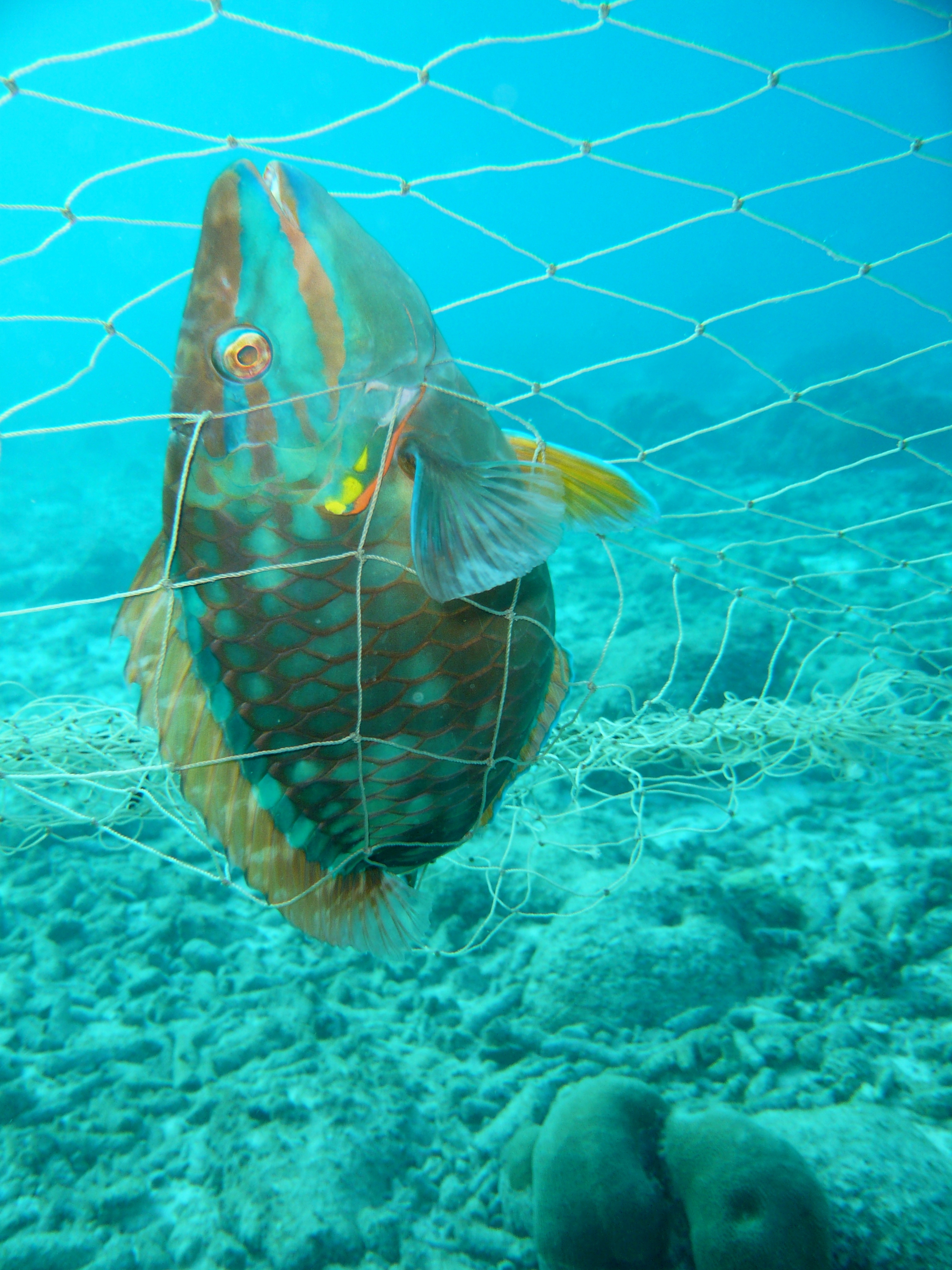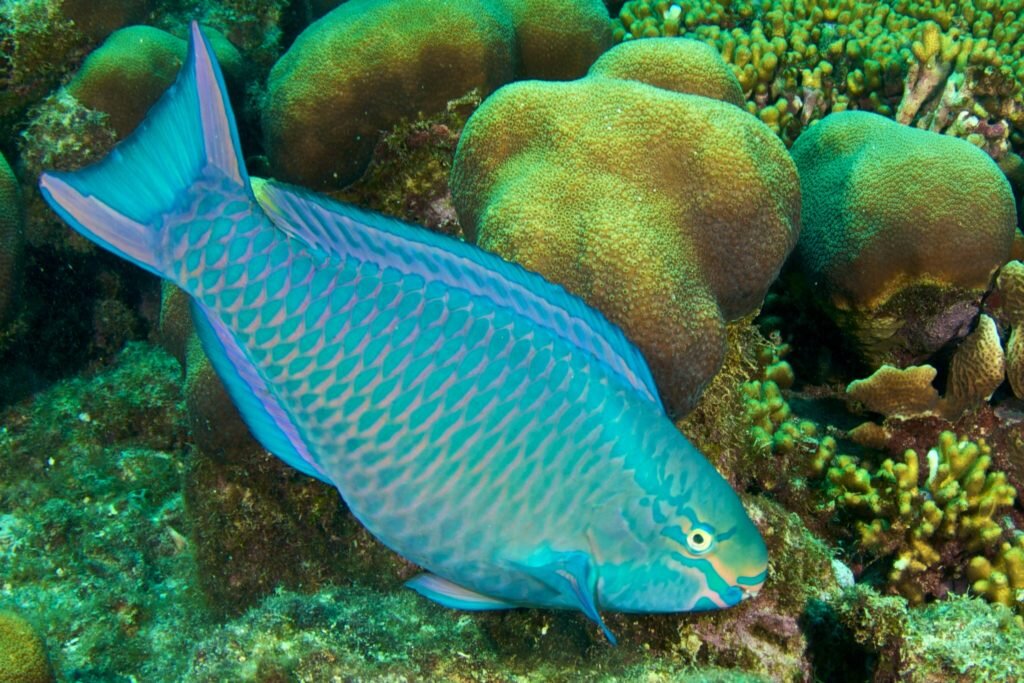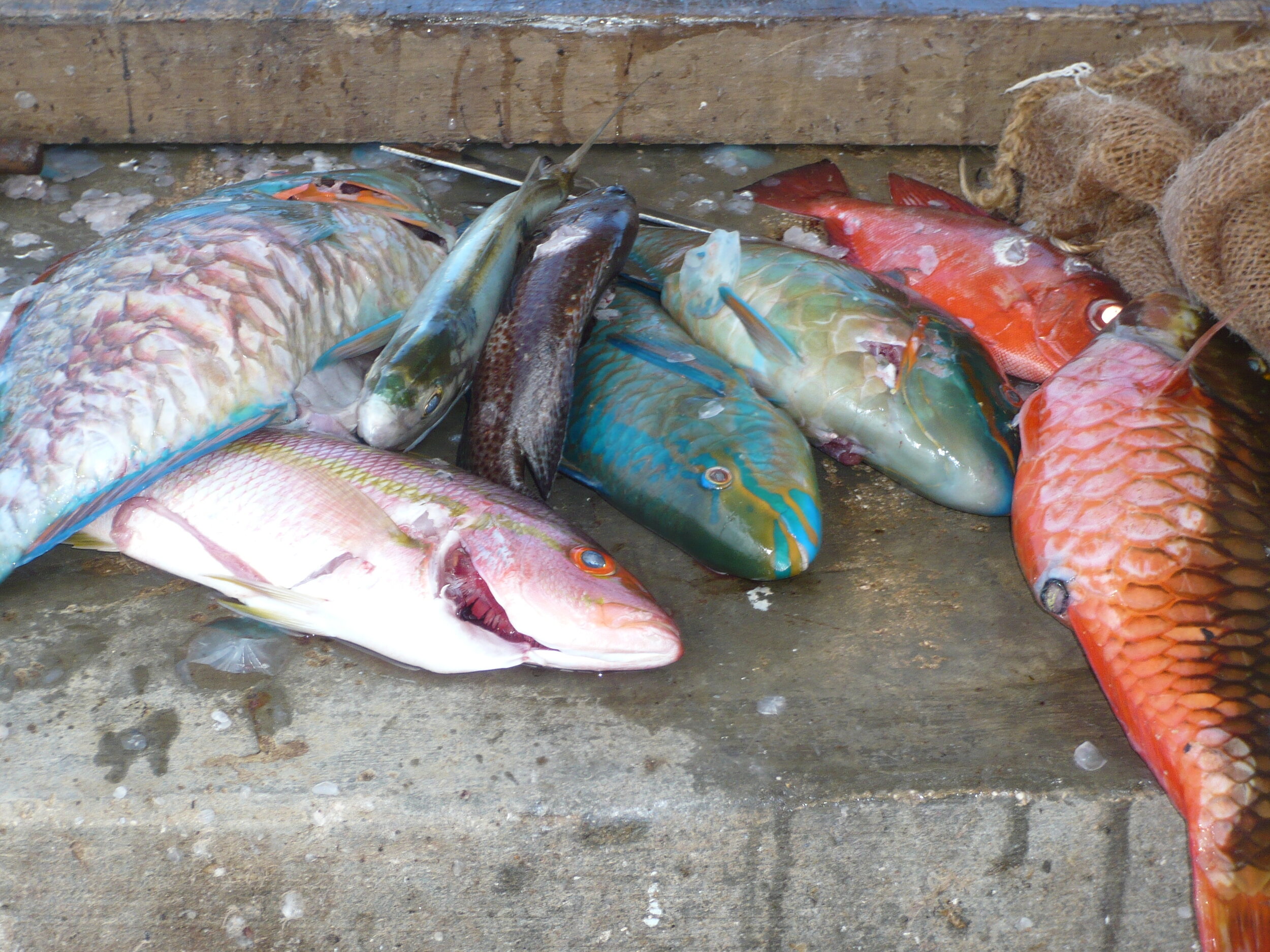To Save Coral Reefs, Start With Parrotfish
Originally published on the (now archived) National Geographic blog.
July 2, 2014
Queen parrotfish eating algae off a relatively healthy reef. Their beak-like mouth is perfect for this. (Photo: Stanley Bysshe)
Coral reefs are very complex ecosystems, but luckily managing them sustainably is not. Simply don’t catch fish faster than they reproduce, don’t damage the corals or pollute the water, reduce atmospheric CO2, and protect some areas as marine reserves.
That’s easier said than done, and it’s not news. What is new is that an exhaustive, Caribbean-wide analysis shows that the #1 thing we can do to ensure the health of coral reefs is to protect parrotfish.

Parrotfish are colorful and voracious herbivores that spend up to 90% of their day eating algae off of coral reefs with their beak-like teeth. And they poop sand (up to 200 pounds of it per year!) keeping beaches beachy, as this humorous video explains.
However, parrotfish have been overfished and Caribbean reefs have gotten increasingly furry with algae over the past for decade, resulting in a far less pretty picture, and a far less productive and resilient ecosystem.
The Global Coral Reef Monitoring Network of IUCN has just released a report by 90 experts* that analyzed a massive amount of data – 35,000 surveys conducted at 90 Caribbean locations since 1970! –including much that has never been analyzed and published before. You can find the report and executive summary here, and a video explanation here, but here’s my distillation:
- Caribbean corals have declined by more than 50% since the 1970s.
- Most Caribbean reefs have been dominated by algae since the mid 1990s. This shift from coral to algal dominance was initiated by the combination the mass die off of sea urchins (the other key herbivore) and the overfishing of parrotfish.
- The healthiest Caribbean reefs are those that still have robust parrotfish populations, such as Bermuda and Bonaire, which restricted or banned fishing practices that harm parrotfish, such as fish traps and spearfishing.
- Overfishing is the primary factor determining current Caribbean coral health, not climate change or pollution.
Overfishing is the primary factor determining current Caribbean coral health, not climate change or pollution.
A spearfisher’s catch in Curaçao, mostly parrotfish. (Photo: Ayana)
The report recommends:
- Protecting parrotfish as completely as possible via fisheries laws and regulations;
- Monitoring and enforcing these restrictions, while working with local communities to minimize impact on fishing livelihoods;
- Listing parrotfish as a specially protected species under the SPAW Protocol; and
- Providing education on the importance and the benefits of these measures to communities and stakeholders.
Or in the words of elder Barbudan fishers:
- Larkin Webber: “I am worried about the taking of parrotfish because they clean the reef. Now people are specializing in catching parrotfish and that’s a problem. Parrotfish should be protected.” (For more wisdom from Larkin, see this previous blog post.)
- Josiah Deazle: “Parrotfish is my favorite fish to eat because I have no teeth anymore. How I’m going to eat boney fish? … But catch of parrotfish should be banned. People are taking so much of them the reef is gonna die.” (For more from Josiah, see this previous blog post.)
In sum, overfishing is what caused Caribbean coral reefs to fall apart, not climate change. So local management of fishing, and protection of parrotfish in particular, matters immensely and can help save reefs.
This comprehensive report provides further support for banning catch of parrotfish altogether, or at least restricting the use of the fish traps (See “Solution: Escape Gaps for Fish Traps”), spearguns, and gill nets that target them as several locations have done, and for the ban drafted by the local government of Barbuda as part of the Barbuda Blue Halo Initiative.
This is not an ocean hugging environmental issue, Caribbean reefs generate more than US$ 3 billion annually from tourism and fisheries. This is a problem we can solve, to great benefit of ecosystems and economies. Here’s to hoping 2014 continues to be a year of strong action for ocean conservation, not just for establishing marine reserves, but also for saving parrotfish and therefore Caribbean reefs.
*Note: For more positive stories about solutions for ocean conservation see the Smithsonian Ocean Portal, State Department’s “ocean success stories," MOS Foundation, and follow #oceanoptimism on Twitter.
*Disclosure: Dr. Jeremy Jackson, the report’s lead author was my PhD advisor, and I am one of the 90 contributing scientists. Kudos to Dr. Jackson for his herculean effort coordinating this project over the last three years.


